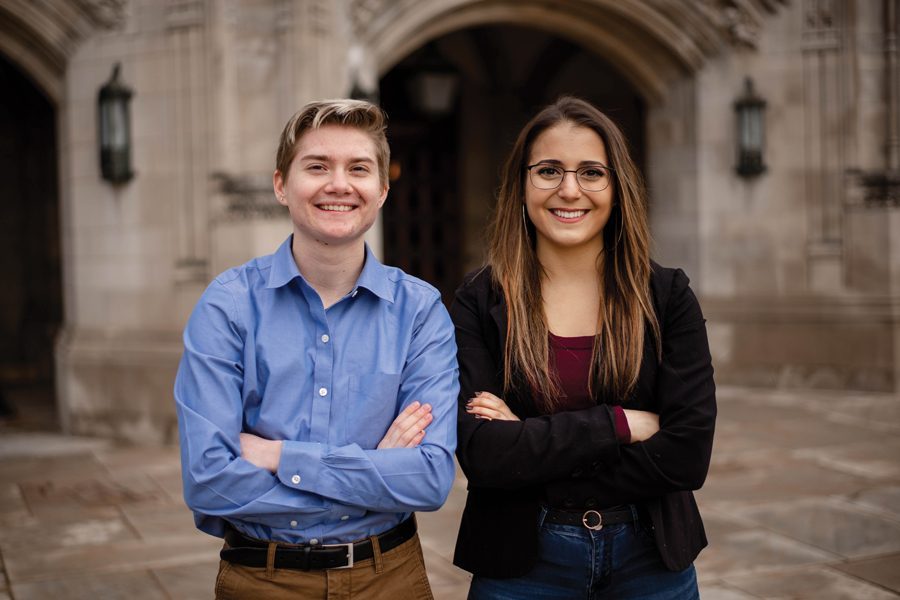ASG introduces resolution to mandate CARE training for all ASG members
Owen Stidman/Daily Senior Staffer
Adam Davies, left, and Izzy Dobbel, right, brought up the necessity of creating exemptions to CARE training requirements for survivors of sexual assault who may not feel comfortable attending a session.
May 29, 2019
Senators introduced legislation on Wednesday to require all members of Associated Student Government to receive sexual health and support training from the University’s Center for Awareness, Response and Education.
The bill is a further iteration of legislation passed by ASG in November 2017 that required student groups requesting funding to send two of their executive board members for training.
The training covers a large range of topics including sexual violence response and prevention, bystander intervention, masculinity, Title IX and others. That legislation has been “broadly successful,” the current bill declares, demonstrating the effectiveness of CARE training and the ability for ASG to enforce the requirement.
“We created this legislation on the principle that it’s hypocritical and contradictory for us to expect this training of student leaders in other student organizations but not to expect it from ourselves as also student leaders,” said Flannery Cusick, the Sexual Health and Assault Peer Educators senator.
Sessions are currently predominantly offered during Spring Quarter, though Cusick said she and other ASG officials have been in communication with CARE and the Office of Equity to also offer training during Fall Quarter.
Enforcement of the legislation will fall upon the parliamentarian, currently Elizabeth Sperti, who will be tasked with ensuring compliance and doling out consequences, including possibly revoking a senator’s seat. Under more complex situations, Cusick said the rules committee will also be involved in deciding the appropriate repercussion or course of action.
It’s important, ASG executive vice president Adam Davies said, that there are exceptions made for survivors of sexual assault, who may feel uncomfortable attending such training.
“Thinking about the trainings like this and making sure that ASG is setting an example of having a survivor-centered approach means that it’s important to offer those options to people,” Davies said. “I know that previous trainings that the University has mandated around this have all been optional because of this, so just figuring out the best way to do that without making people disclose their survivor status.”
Giving parliamentarians discretion to issue exemptions in these cases, which was the initial solution offered by the authors of the bill, would leave survivors vulnerable to the changing standards of various parliamentarians over the years, said ASG president Izzy Dobbel.
Creating enforceable, legally codified mechanisms through which survivors can gain exemption without disclosing their survivor status, Dobbel said, is crucial to ensure their continued safety. In this vein, a possible solution proposed by Dobbel was to work with the Office of Equity to create lists of students who are exempt from the training that would be sent to parliamentarians every year.
“The best way to see success in legislation over time is to make sure that it’s codified and there are systems that we can’t stray away from,” Dobbel said. “Our parliamentarian is a rock star, and she definitely will understand the complexities of if someone wants to refrain from participating because of their own experiences, but that might not be a system in the future if a different person is in the role who isn’t familiar with how to be survivor-centered.”
Email: [email protected]
Twitter: @jalan_atul
Related Stories:
– ASG-funded groups complete CARE training on sexual violence, positive sexuality
– Healthy sexuality, sexual violence prevention training mandate extended to club sports teams


